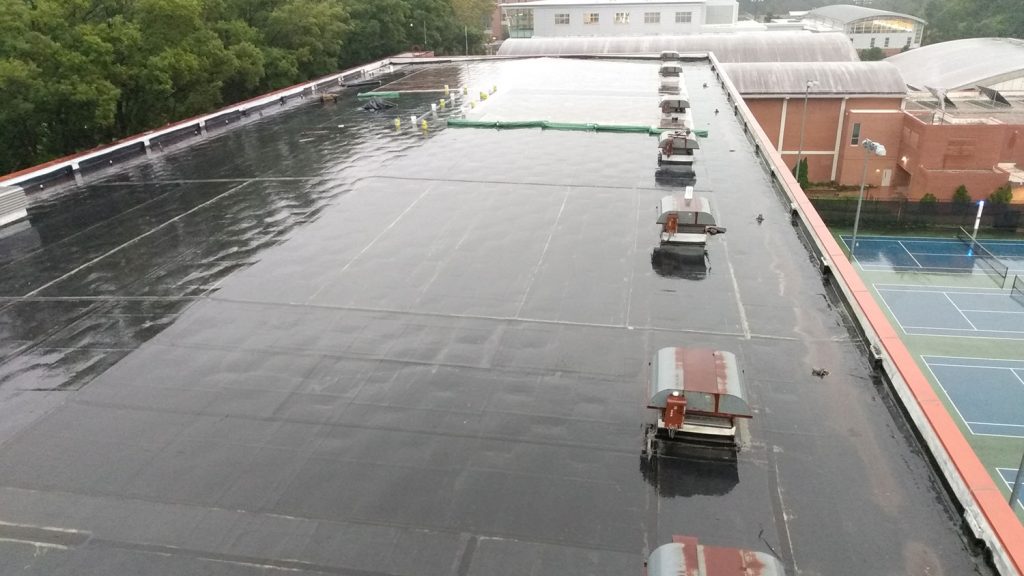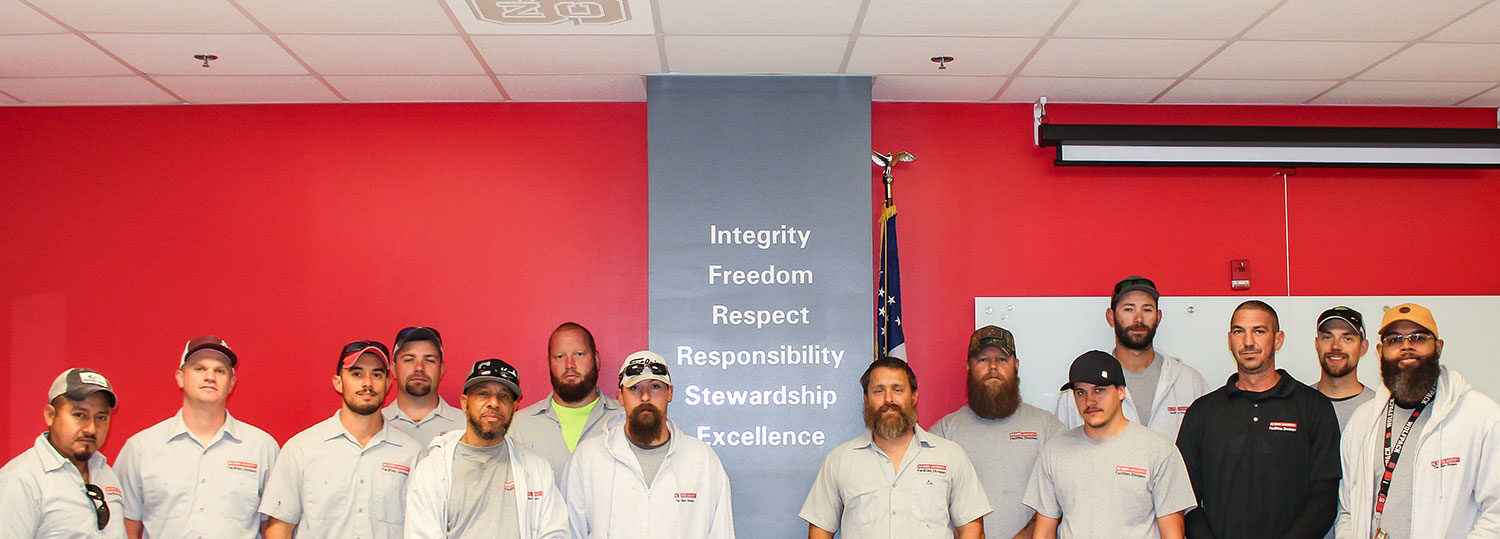For many years, the roof atop Carmichael Gym has been among the most problematic on campus. At 38,000 square feet, it’s susceptible to leaks that have frequently sidelined Wolfpack Gymnastics practice, use of indoor basketball courts and other recreation facilities.
“We were patching Carmichael’s roof nearly every time it rained,” says Alex Brininger, supervisor of the Roofing, Waterproofing and Metal Fabrication Shop in NC State’s Facilities Division.
But with cost estimates approaching nearly $1 million, replacing the roof wasn’t a cost-effective option. The team had to find another way.
“Replacing a roof involves tearing it down to the deck and installing a new roof,” Brininger says. “A rubber overlay is a type of roofing system that you glue down on top of an existing roof. Typically, it adds about 15 years to the life of the original roof.”
The roofing shop had installed overlays at several campus buildings, most notably Cates Utility Plant and Holmes Hall, where the savings topped $300,000 compared to contractor estimates.
“Neither of those buildings has leaked once since,” Brininger says.
The problem with Carmichael was its size. Though Brininger knew his 16-employee team could successfully install the overlay at significant savings over an outside contractor, it would require a lengthy building closure to safely complete the work. That seemed unlikely until the COVID-19 pandemic, which unexpectedly closed the facility for several consecutive months.
Starting in July, the team began working on the project in between leak repairs at other campus buildings and frequent summer rain. They prepped the surface, used adhesive to apply 50-foot rolls of rubber across the existing roof, and sealed the seams to ensure a waterproof fit.

The project is now complete with materials and in-house labor totalling a fraction of original vendor estimates.
“This overlayment will last at least 15 years and save the university over $500,000,” Brininger says. “I am very proud of my team for the attitude and hard work with this project. They worked extremely hard in very hot weather conditions and showed great attention to detail on a challenging project.”
This post was originally published in NC State News.
